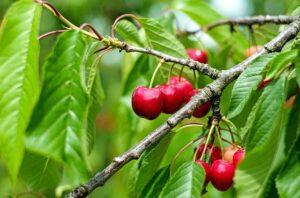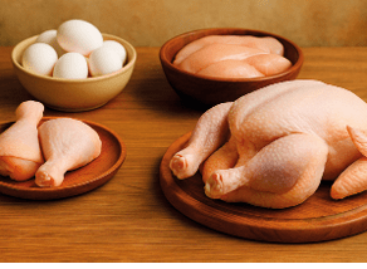A smaller harvest of cherries is also expected due to the spring frost
There are far fewer cherries than average this year, the spring frosts took 40-50% of the crop, and due to the heavy rains of the past few weeks, many ripe fruits cracked. The National Chamber of Agrarian Economy advocates the reviving of breeding, variety experiments, the cadastral system, which was practically abolished in the early 2000s, and the creation and use of varieties that can withstand the changing Hungarian weather, instead of Mediterranean varieties that are not suitable for the domestic climate.

(Photo: Pixabay)
Cherries are grown on about 2,700 hectares in our country. In terms of territorial distribution, the counties of Pest and Heves stand out with over 500 hectares of cultivated land, but there are also significant areas in the counties of Szabolcs-Szatmár-Bereg and Bács-Kiskun. In good years, the harvest is about 12-13 thousand tons, this year experts expect only 50-60% of this, major frost damage occurred in Transdanubia and between the Danube and Tisza, but the situation is not ideal in the east and south either.
This year’s cherry season has already started with the early varieties
The damage is significant in the vast majority of production areas, but a smaller loss is also expected for varieties that ripen after mid-June. Buyers are typically looking for large, crisp cherries over 28 mm, late-ripening varieties are available until mid-July. It is unfortunate that the variety experiments and the cadastral system were abolished in our country a few years after joining the EU. Due to the latter, it is not possible to control whether suitable fruit species and varieties are planted in a given location, and it is also not possible to make adequate economic and technological proposals. Unfortunately, the domestic fruit breeding profession has declined, it does not offer a perspective for young people, most of them have left the field. Hungarian farmers were basically forced to import foreign, mainly Mediterranean varieties. However, today the weather has changed so much that the varieties should be able to withstand not only the warm winter, but also the differences between 15 and -10 degrees Celsius that can occur within ten days – but the currently generally used ones are not able to do that. Thus, spring frost damage increases every year.
NAK is launching a series of professional events this year
Here, it provides farmers with relevant information regarding a number of important fruit species, preparing them for the plantation planting tenders expected in the coming years. The first event of this kind – on June 15 – is based around the theme of cherries, where the organizers want to direct the attention of farmers not only to strive for the early ones, since those varieties have a higher risk of frost, but also to focus on the middle and late varieties. Furthermore, a lot of rain can lead to cracking of ripening fruits, and on the other hand, plant protection costs can also be higher. For cherries, a net covered with foil can also help, for which state support should also be considered. This is because the safety of production can be significantly increased on intensive plantations covered with ice and rain protection film, but their investment costs are high. The installation of special insect protection nets on new plantations may also be justified professionally, which further increases the cost of investments.
As this year, unfortunately, in four of the last six years, spring frosts destroyed a significant part of the domestic fruit production (among them: apricots, peaches, cherries, and to some extent cherries, plums, pears, apples; mostly affecting the early varieties). Together with partner organizations, NAK prepared a proposal on what steps would be necessary to mitigate the risks.
NAK
Related news
Not a turnaround, but consolidation: an agricultural outlook for 2026
🎧 Hallgasd a cikket: Lejátszás Szünet Folytatás Leállítás Nyelv: Auto…
Read more >Related news
Spring whirlwind at the 60th anniversary EuroShop trade fair
🎧 Hallgasd a cikket: Lejátszás Szünet Folytatás Leállítás Nyelv: Auto…
Read more >







